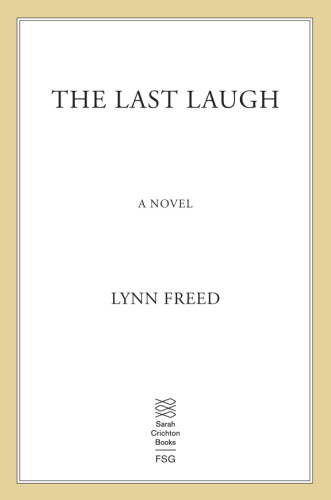
The Last Laugh
A Novel
کتاب های مرتبط
- اطلاعات
- نقد و بررسی
- دیدگاه کاربران
نقد و بررسی

May 8, 2017
Three “mad old bags,” all pushing 70, pool their resources to rent a house on a Greek island for a year in the drily whimsical latest by Freed (The Servants’ Quarters). Narrator Ruth, a South African transplanted to the United States, has just given up writing a series of detective novels, and pens a magazine column about their Greek adventures called “Granny Au Go Go.” Her half-sister, Bess, devotes herself to shopping and a fling with a local taxi driver, and Israeli Dania, a psychotherapist with a flair for misusing the English language (e.g., “Scrap the bottom of the barrel”), fends off a former patient with blackmail on her mind. Freed juggles a cast of interrelated characters that runs into the dozens, the most notable of whom is Gladness, Bess’s Zulu best friend and the former nanny to her children, and which also includes several former still-hunky lovers. If the various children and grandchildren who pop in and out, testing their elders’ patience, sometimes blur together, the core relationships stay strong, making for a pleasant and diverting read. Ruth’s columns, which occasionally reveal more than she intends about her housemates, add humor.

May 1, 2017
Greece is the word for a trio of almost-septuagenarian women determined to enjoy an idyll free of family and romantic entanglements...or is it?Ruth, Dania, and Bess, the triad at the center of Freed's (The Servants' Quarters, 2009, etc.) slyly delivered version of a novel of women's self-actualization, retreat to a Greek isle for a yearlong experiment in communal living undisturbed by children, grandchildren, lovers, or others. Ruth, a South African expatriate and mystery novelist, narrates the trio's saga, directly and via journal excerpts and magazine columns chronicling the sojourn. The column, optimistically entitled "Granny Au Go Go," provides Ruth and her half sister--the indolent Bess--with an opportunity to "tell it like it is" for women of a certain age as well as a way to illuminate the differences between the truisms of later life and the stereotypes of grannyhood. Dania, a kibbutz psychologist given to malapropisms, balances out the threesome with an apparent self-absorption that masks a troubling reality. When snakes--in the form of family, friends, and lovers--invade the proverbial Eden created by the three, the carefully crafted equilibrium among the group is balanced and rebalanced and balanced again. Comic relief is provided by the (often painfully earnest) politically correct edits a faceless editor provides for Ruth's columns, but macabre and antic episodes may distract the reader's attention from Freed's observations about women's lives and second-wave feminism woven throughout the tale. Fraught relationships between mothers and daughters, grandmothers and grandchildren, and men and women are explored and detailed against the backdrop of usually perfect scenery, but it is the sometimes-madcap behavior of Freed's characters that may be the takeaway for many readers. Replete with references to Greek mythology, Freed's modern retelling of a timeless tale of self-fulfillment wanders into surprising territory along the way.
COPYRIGHT(2017) Kirkus Reviews, ALL RIGHTS RESERVED.

February 15, 2017
Deciding on a year in Greece when the grandchildren start descending like locusts, three friends find that their sun-kissed sabbatical comes with complications. Hangers-on follow both Dania and Ruth abroad, while Bess enjoys a romance with local poet Dionysus until his wife barges in. And wouldn't you know the children and grandchildren start turning up, too. From the inaugural winner of the Katherine Anne Porter Award from the American Academy of Arts and Letters.
Copyright 2017 Library Journal, LLC Used with permission.

























دیدگاه کاربران